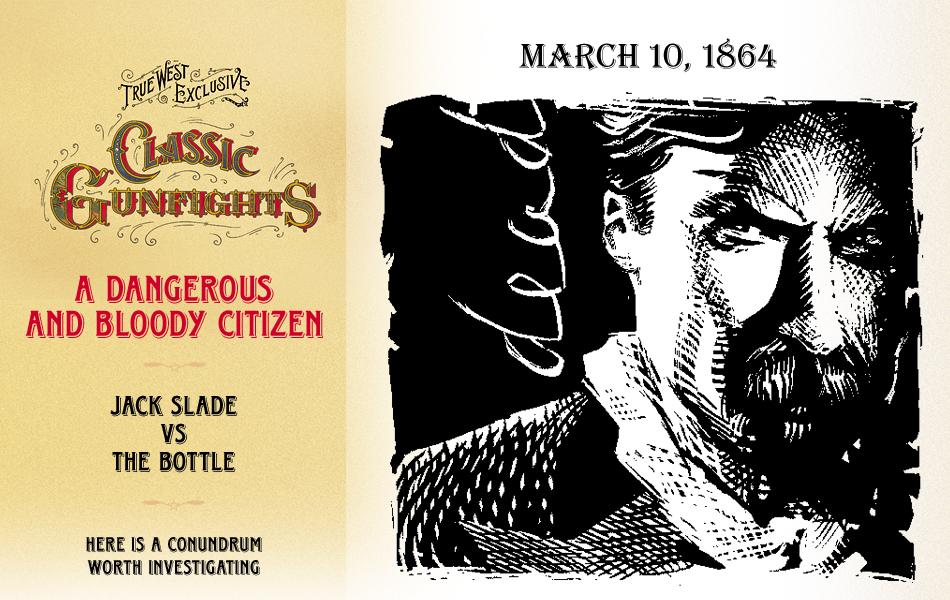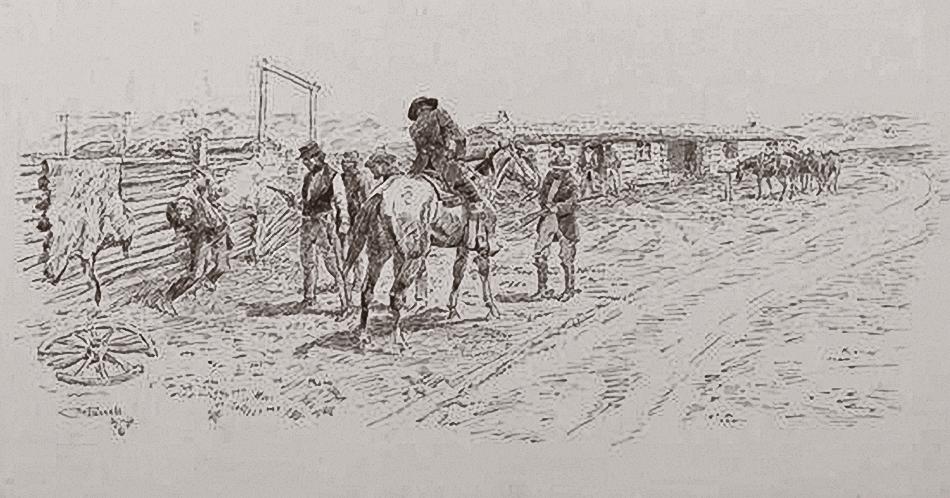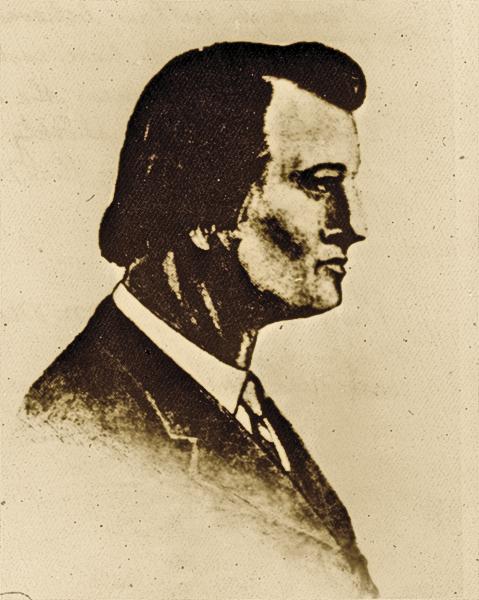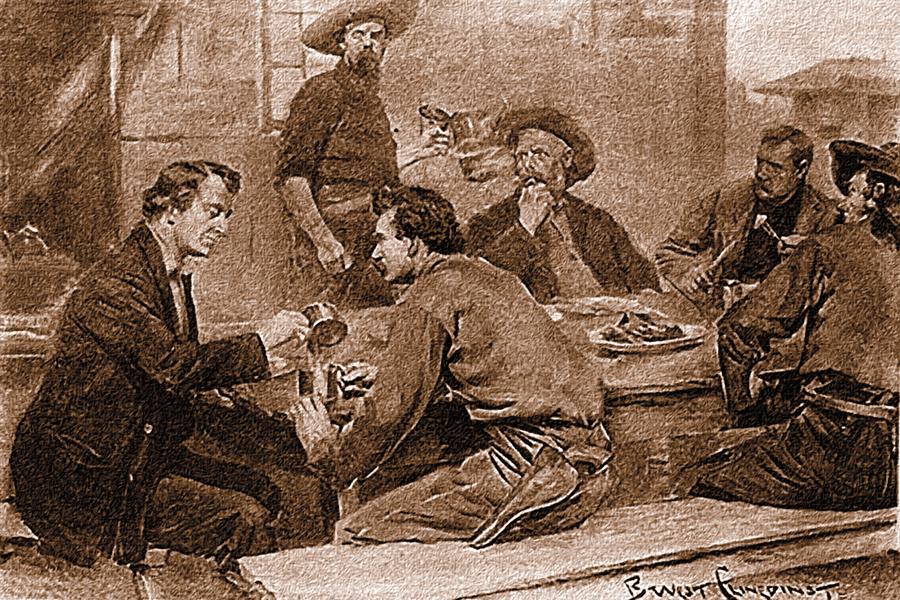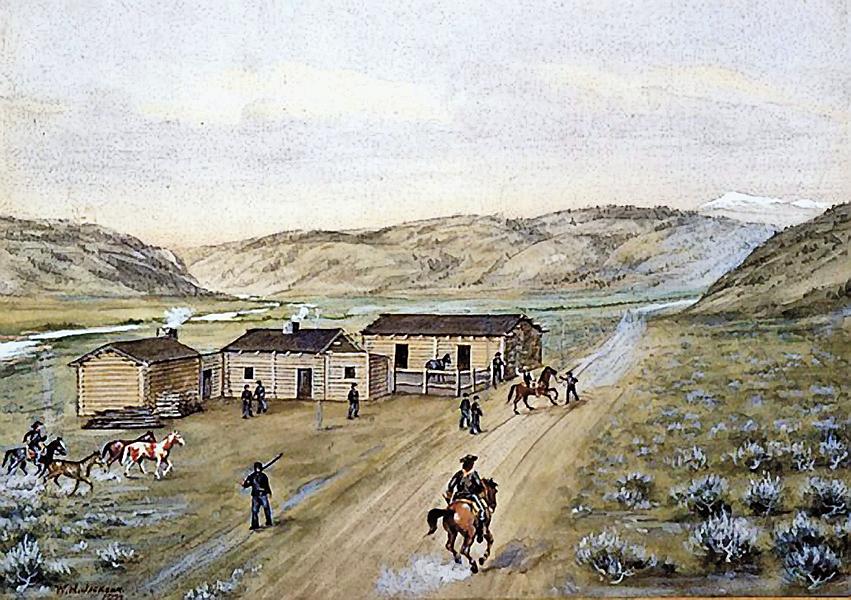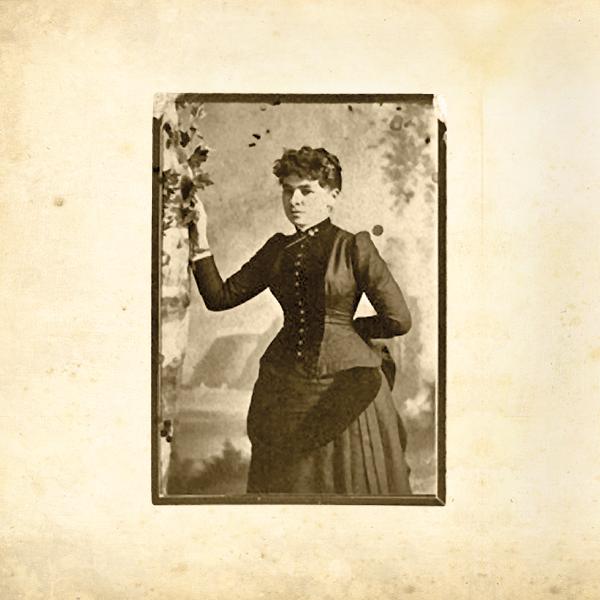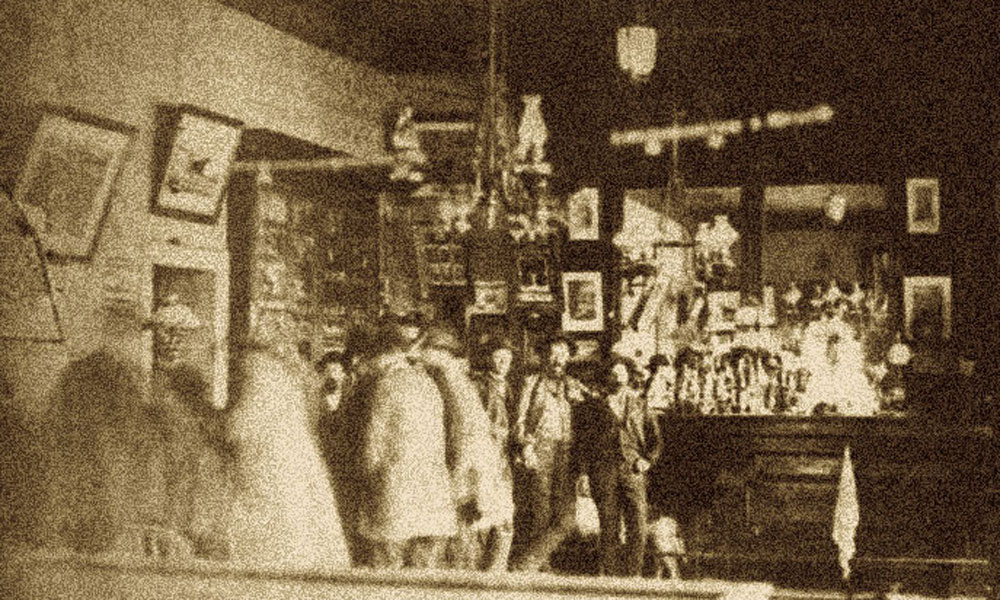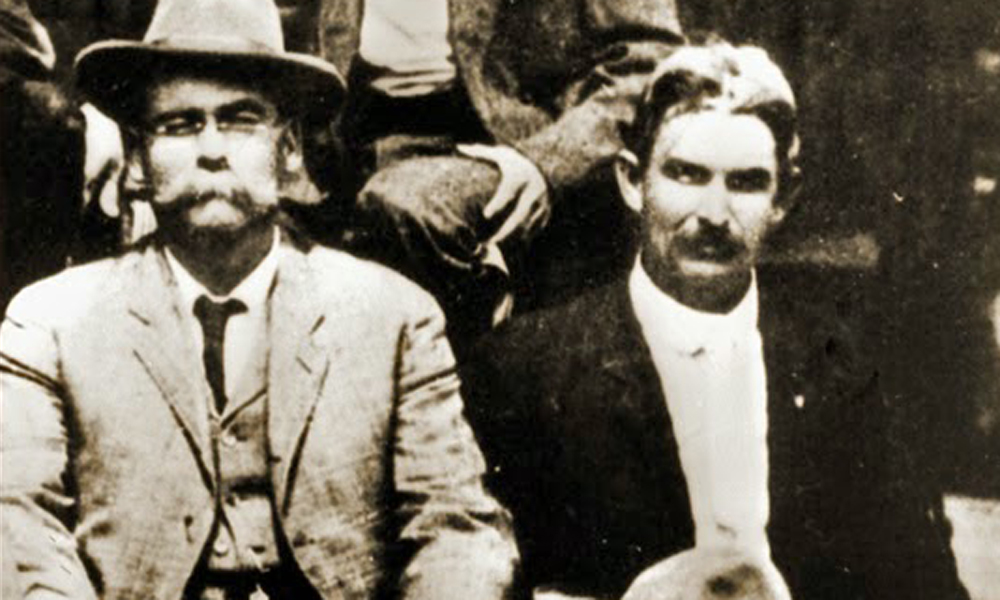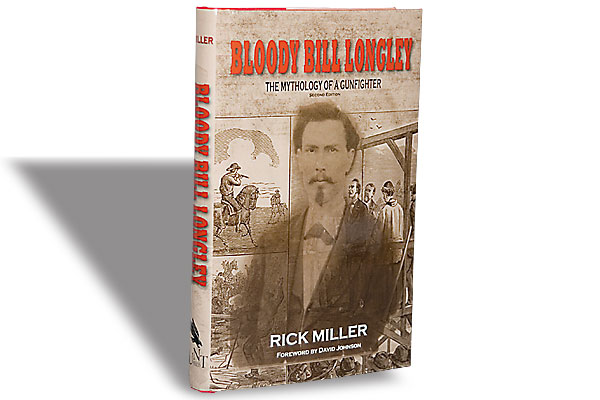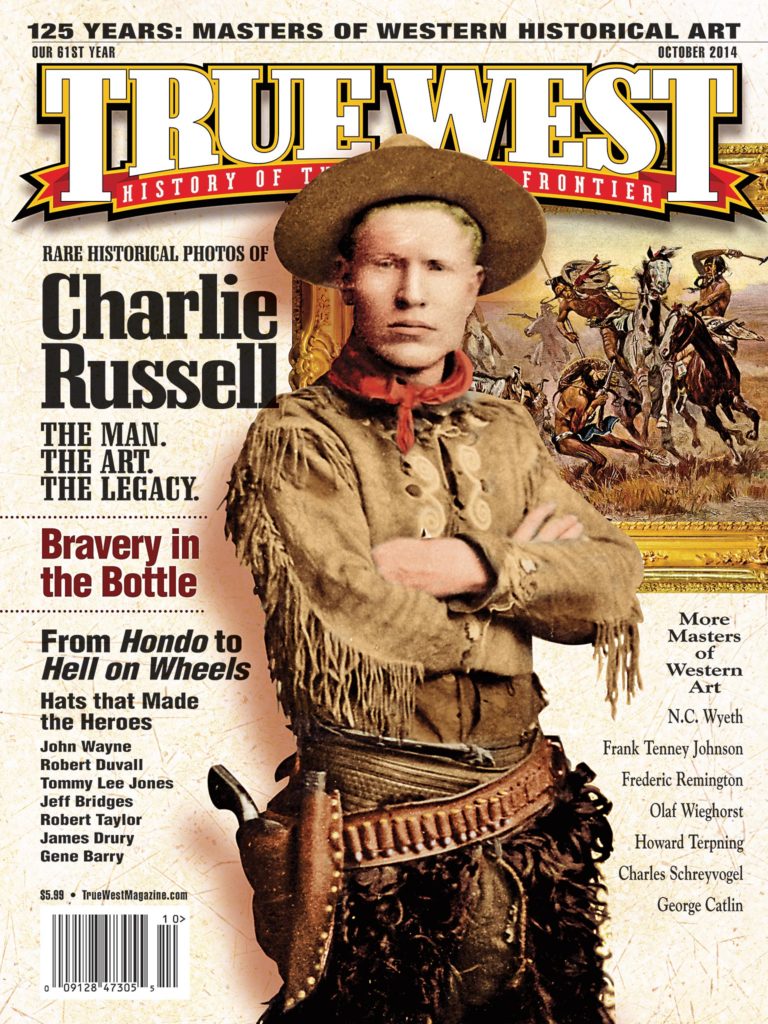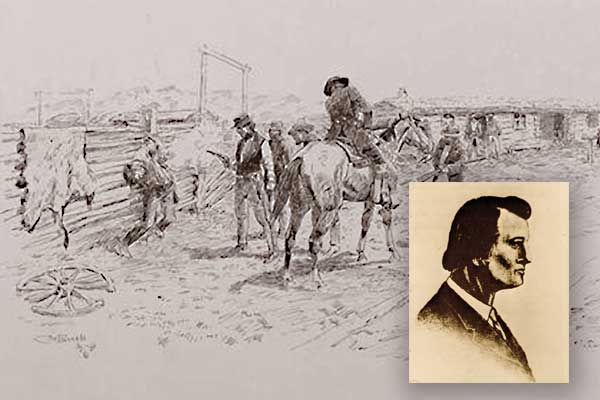 March 10, 1864
March 10, 1864
Jack Slade, once the heroic peacekeeper of the Central Overland stagecoach line, is drunk and in an ugly mood on the main street of Virginia City, Montana. He fires his pistols at anything that fancies him.
He curses, picks fights, overturns a milk wagon and strikes friends in the face after making a toast. He has been known to rob his friends. He is fond of breaking up the furniture in all the saloons he frequents, and he frequents them all.
For the past two weeks, in a series of drunken sprees, he has terrorized mining camps by riding his horse into saloons and shooting glasses off the shelves. He has been arrested and warned more than once. On these benders, he carries a watch fob of human ears, and he brags about how he procured them.
A committee of vigilantes approach the town’s meanest drunk and tell him the jig is up. At first, Slade is defiant, trusting he has everyone in town buffaloed. But when a rope is brought forth and slung over the beam of a corral gate, Slade breaks down and cries.
An eyewitness reports, “Slade crept about on his hands and knees, begging like a baby. ‘My God! My God!’ he cried, ‘Must I die? Oh, my poor wife, my poor wife! My God, men, you can’t mean that I’m to die!’”
Slade is strung up for disturbing the peace. Rarely has a man with such a fearsome reputation gone out of this world with such a whimper.
A Fearsome Reputation Based on Scant Evidence
Slade was thought to be vindictive—quite the contrary. After being ambushed and left for dead in March 1860 by Jules Beni, a corrupt station manager under Slade’s supervision at the Central Overland Stage, Slade did not pursue Beni. He sent word that Beni should avoid Slade’s territory. When Beni returned in August 1861, Slade posted a $500 reward for his capture alive. Two of Slade’s men apprehended Beni in a gunfight, but he died en route to Slade. Rather than lose the reward, they bound Beni to a post and insisted he was alive. A skeptical Slade tested their veracity by cutting off Beni’s ears and got no response.
Despite Twain’s rhetoric, Slade had only one documented killing, in May 1859, when he shot Andrew Ferrin, a subordinate who had obstructed a freight train. Slade’s fearsome reputation apparently had much to do with his handle. As Twain wrote, “There was such magic in that name, SLADE!”
*****
When Slade’s wife reached town, she screamed at his killers and cursed them for hanging him instead of shooting him. “He was worth a better death than that, she protested,” author Emerson Hough reported in The Story of the Outlaw. “He should never have died by the rope of a hangman,” she exclaimed in agony, as reported by Nathaniel P. Langford in Vigilante Days and Ways. “No dog’s death should have come to such a man.”
*****
Rather than see him buried among his executioners, Slade’s wife preserved his body in alcohol for nearly five months until the roads were opened. She then transported it 475 miles by stagecoach to Salt Lake City, Utah, for temporary burial in a pauper’s grave, with instructions to move the body permanently that fall to Slade’s hometown of Carlyle, Illinois. But Slade remains in the Salt Lake City grave to this day. His biographer, Dan Rottenberg, is currently attempting to finish the job by exhuming Slade’s body and returning it to Illinois for a proper burial, as Virginia Slade had wanted.
*****
One theory states Montana vigilantes traditionally buried lynched badmen in graves three feet wide, seven feet deep and 77 inches long. To this day, the badges of the Montana Highway Patrol bear the vigilante symbol: “3-7-77.”
Recommended: Death of a Gunfighter: The Quest for Jack Slade, the West’s Most Elusive Legend by Dan Rottenberg, published by Westholme Publishing
Photo Gallery
– by Bob Boze Bell –
– Illustrated in Back-Trailing on the Old Frontiers series by Montana Newspaper Association –
“Slade was at once the most bloody, the most dangerous and the most valuable citizen that inhabited the savage fastnesses of the mountains.”
—Mark Twain, Roughing It
– True West archives –
– Illustrated in Roughing It by Mark Twain –
– Courtesy Scotts Bluff National Monument –
– Courtesy Collection of Charles Bovey –


